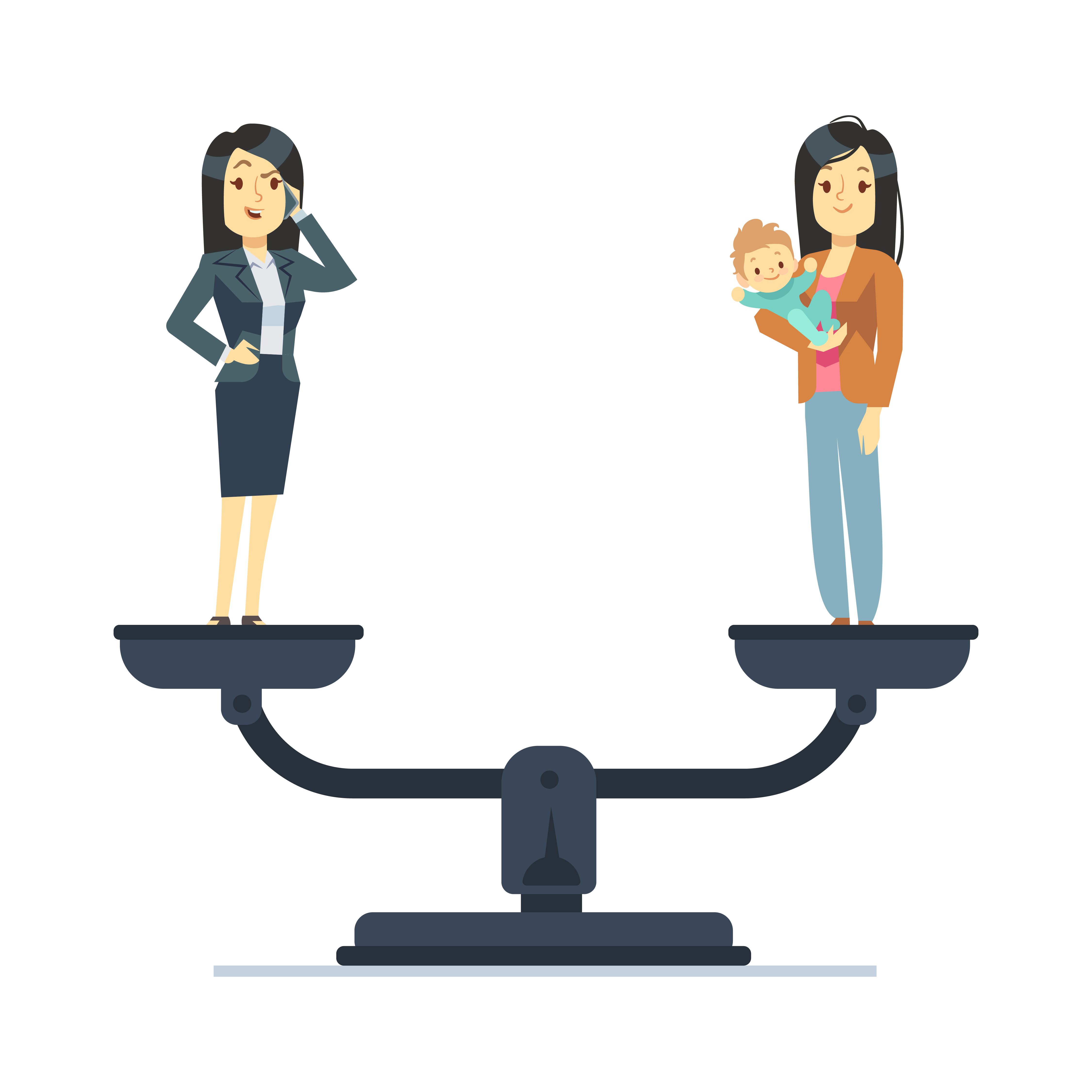By ayoti
Work-life balance: Tips to regain control

There was a time when the boundaries between work and home were pretty clear. Today, however, work is likely to interfere with personal life, so maintaining a work-life balance is not easy. This is very likely to happen if you are concerned about losing your job due to restructurings, layoffs, or other factors. Technology that allows a constant connection to work can be time-consuming at home. It can be particularly challenging for parents of young children to balance work and life.
To start the balancing part, analyze your relationship with work. Then use specific strategies to try to achieve a healthy balance.
Are you married to your job? Consider the cost
It can be tempting to rack up hours at work, especially if you are trying to get a promotion or managing a growing workload or trying to stay afloat. However, if you spend most of your time working, your life at home will suffer.
Consequences of a poor work-life balance:
- Fatigue: potentially damages your professional reputation or lead to dangerous or costly mistakes.
- Poor health: Stress is associated with adverse effects on the immune system and increases the risk of substance abuse.
- High expectations: If you work overtime regularly, you may have more responsibilities, which could lead to additional worries and challenges.
Achieve a better work-life balance: Learn to set limits
As you work, balancing the demands of your professional life and your personal life is likely to be a constant challenge. You can achieve the work-life balance that is most convenient for you by setting the limits. If you don’t set boundaries, work, or other obligations can leave you no time for the activities and relationships you enjoy.
- Manage your time: Reduce or delegate activities by organizing it.
- Make a list: Write family events on a weekly calendar and record daily tasks for work and personal. Having a plan will help you stay focused.
- Learn to say no: Whether its official or personal tasks accepted out of guilt or a false sense of duty, you will have more time to devote to activities that are of value to you.
- Productive Work: Make a conscious decision to be productive during time off work and to have your own personal time.
- Organize the Emails: Neatly organizing the emails will help you focus and be proactive about essential things, rather than spending some more time on junk.
- Take advantage of your options: Ask your employer about flexible hours, a reduced workweek, job sharing, telecommuting, or other types of flexible work hours. The more control you have over your time, the less stressed you are likely to feel.
- Try to cut down on commitments and minimize interruptions: Most people can only maintain the maximum concentration level for up to 90 minutes, after which the ability to retain information decreases dramatically. For avoiding being interrupted during an activity, cut down all the overlapping tasks as said, it is better to prioritize the tasks.
Personal care
Living a healthy lifestyle is essential for coping with stress and for achieving work-life balance.
Please try the following:
- Maintain a healthy diet: The Mediterranean diet, which focuses on the consumption of fresh fruits and vegetables and lean proteins, increases the ability to retain knowledge and improve vigor and well-being.
- Sleep enough: Lack of sleep increases the stress level. It is also essential to avoid using personal electronic devices, such as tablets, before going to sleep. The blue light emitted by these devices reduces the level of melatonin, the hormone associated with rest.
- Set aside time for fun and relaxation: Set aside time each day to do an activity that you enjoy, such as yoga or reading. Better yet, find activities that you can do with your partner, family, or friends, such as taking a walk, dancing, or attending cooking classes.
- Volunteer: It is crucial that you do not overload yourself with tasks. However, research indicates that volunteering can contribute to a greater sense of work-life balance. Selective volunteering can reduce your levels of exhaustion and stress, increase your emotional and social well-being.
- Strengthen your support system: At work, join forces with colleagues who can cover you, and vice versa, when family conflict arises. At home, make a list of trusted friends and loved ones who can help with childcare or domestic responsibilities when you have to work overtime or travel.
Know when to seek professional help
Mind to mind support: If you feel like your life is too chaotic and you can’t control it, and you spend your time worrying about it, talk to a professional — for example, a therapist or other mental health care provider. If your employer offers you an employee assistance program, take advantage of the services available. Remember that achieving a healthy work-life balance is not something instantaneous. Achieving work-life balance is an ongoing process related to changes in your family, your interests, and your work life. Periodically review your priorities – and, if necessary, make modifications – to make sure you are on track.
Oh Great: You got some additional Time? Then mind it, because time is money.
With the help of technology and the internet, there are several home-based works that we can opt to make the valuable time converted to money. Some of them are below. Before starting your own business, it is essential to do proper research on the same.
- Sell on Amazon: Starting a business on Amazon, textile, mask, and sanitizers is a good idea.
- Blogging
- Affiliate Marketing
- Freelance Writing
- Proofreader
- Bookkeeper
- Social media influencer
- Online Counsellor
- Transcription
- Renting Business Spaces
- Photography
- Social Media Manager
- Interior Designer
- Foodservice business
- Stock trading
- Home-based online hobby classes
- Health and Fitness trainer
- Soapmaking
- Teach or Tutor
- Cake Making Business
- Event planner



